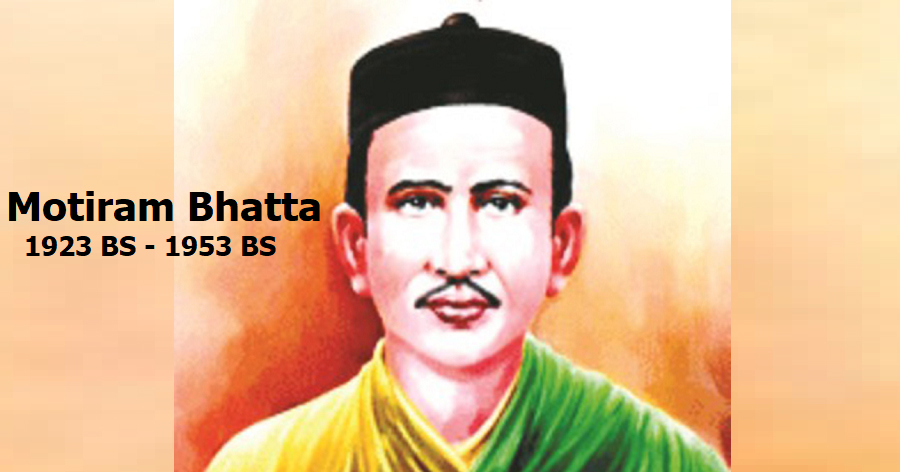
Celebrating the Life and Legacy of Motiram Bhatta: The Pioneer of Nepali Literature
On the occasion of his 158th birth anniversary, we pause to remember and celebrate Motiram Bhatta, a monumental figure in the Nepali literary landscape and the founder of journalism in Nepal. His impact on the Nepali language, literary criticism, and journalism is unparalleled, and his legacy endures as a beacon for the younger generation.
Early Years: A Foundation in Literature
Motiram Bhatta was born in the village of Bhosi in Kathmandu in 1923 BS to Dayaram Bhatta and Ripumardini Devi Bhatta. His life was a quest for knowledge from a tender age. At just six years old, he moved to Varanasi, a city known for its rich cultural and intellectual heritage.
Education and Multilingualism
In Varanasi, young Motiram Bhatta was exposed to multiple languages and literary genres. His academic journey was marked by an exceptional mastery of Nepali, Sanskrit, Urdu, and other regional languages. These formative years sowed the seeds for his future contributions to Nepali literature.
Unveiling the Jewel: Bhanubhakta Acharya
Among Motiram Bhatta's many significant contributions was his role in bringing to light the works of Adikavi Bhanubhakta Acharya. It was Bhatta who published the first biography of Bhanubhakta, elevating the poet from obscurity to national prominence.
In Service of Nepali Literature
- Introduction of Printing Press: Motiram Bhatta pioneered modern journalism in Nepal by establishing the country's first printing press.
- Gorkha Bharat Jeevan: He published the first-ever Nepali language newspaper, taking journalism in Nepal to new heights.
- Master of Ghazals: Known as the "Father of Ghazals," his work in this genre added a new layer of depth to Nepali literature.
The Many Hats He Wore
Bhatta's talents were manifold, making him a rare gem in Nepali history. His multifaceted contributions are best understood by classifying them into five distinct categories:
- Biographer, Critic, and Researcher: His incisive critical perspectives brought lesser-known works into the mainstream.
- Poet, Ghazal Writer, and Vocalist: His poetic mastery was further enhanced by his melodious singing.
- Problem Solver and Organizer: Beyond literature, his organizational skills manifested in his ability to set up Nepal’s first printing press.
- Playwright and Director: His plays addressed the social issues of his time, reflecting his deep understanding of society.
- Editor and Library Founder: His establishment of a library signaled his commitment to fostering a culture of reading and intellectual exploration in Nepal.
Legacy: The Imprint of a National Hero
Though Motiram Bhatta’s life was cut short at the age of 30 in 1953 BS, his monumental contributions have been immortalized through various means:
- Yuvavarsh Moti Award: An award instituted in his honor to encourage young literary talents.
- Postage Stamp: The state issued a stamp in his name, cementing his status as a national icon.
- Public Recognition: Streets and organizations bear his name, ensuring that future generations remain cognizant of his contributions.
Conclusion: A Beacon for Future Generations
Motiram Bhatta’s life was a blend of multiple talents, each finely honed and each leaving an indelible impact on Nepali culture and literature. His 158th birth anniversary is not merely a date on the calendar, but a day of reflection on the enormous strides Nepali literature and journalism have made, largely owing to his unparalleled contributions.
As we pay homage to this great son of Nepal, we are reminded that his life serves as an inexhaustible source of inspiration for anyone interested in elevating Nepali literature, language, and journalistic integrity to new heights.
Annual Day




